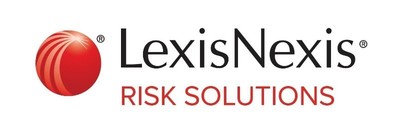LexisNexis Risk Solutions True Impact of Failed Payments Report Reveals 70% of Corporations and Financial Institutions are Frustrated with Their Payment Failure Rate
LexisNexis Risk Solutions released its True Impact of Failed Payments Report, revealing significant challenges in cross-border payment performance. Conducted with 400 payment executives globally, the report shows that over 70% are dissatisfied with their payment failure rates, costing an average of $12.10 per rejected payment. Common issues include incorrect bank beneficiary details, leading to increased workloads for staff. The report emphasizes the need for efficient Straight-Through Processing (STP) to enhance customer retention and reduce costs.
Key findings indicate that higher automation levels correlate to fewer customer losses due to payment issues.
- Companies with high STP and automation report reduced customer loss due to payment issues.
- Emphasis on automation suggests potential cost reductions and efficiency improvements.
- Over 70% of respondents dissatisfied with payment failure rates.
- Payment failures cost businesses an average of $12.10 per rejected payment, increasing operational costs.
- High reliance on manual checks for bank details (72%) can lead to errors and delays.
Insights
Analyzing...
Each Rejected or Repaired Payment Costs Businesses an Average of U.S.
ATLANTA, Feb. 22, 2023 /PRNewswire/ -- LexisNexis® Risk Solutions today released the results of its True Impact of Failed Payments Report, a snapshot of cross-border payments performance on a global scale. The report assesses insights collected from 400 payment executives representing leading corporations and financial institutions across the APAC, EMEA, LATAM and North America regions.
More than
Problems with bank beneficiary name and address details are the most common source of payment delay or failure (
Businesses and financial institutions rely on exceptional rates of Straight-Through Processing (STP), an automated electronic payment process that does not require human intervention. STP protects the integrity of critical supply chains and delivers a smoother experience for customers. Rapid digital acceleration in the payments space raises customer and supplier expectations for payments experiences so balancing speed, accuracy and safety at every touchpoint is essential.
"Customers expect a smooth payments journey and they will quickly abandon a transaction if they encounter too much friction," said Dalbir Sahota, senior director, payments, LexisNexis Risk Solutions. "Our report shows that failed payments are detrimental to customer retention, increase staff workloads and create additional costs. Businesses must keep up with the competition at a time when technology and real time payment initiatives are rapidly changing the marketplace.
"STP offers an automated way for companies to offer customers a smooth payments process and the report illustrates the value of investing in this area. Free tools may sound attractive, but the financial reality is unappealing, with our report showing low STP rates among those that use the most basic of searches. Sophisticated payment data solutions enhance service levels and reduce costs associated with failed and repaired payments," said Sahota.
Key Findings from the LexisNexis Risk Solutions True Impact of Failed Payments Report:
- Payment Troubles Lead to Lost Customers: Companies that have the highest levels of STP payments and automation are very sensitive to failed and delayed payments and estimate they lose a significant number of customers due to these factors. Companies with 250 – 1,000 employees and those with more than 10,000 staff lose a higher percentage of customers than small companies.
- Automation Shrinking the Labor Force: The average payment team size for the largest companies (10,000+ employees) is around
1% of the total workforce, with similar results in all regions. Other than in APAC, banks tend to have smaller payment teams than corporates, due to a higher level of automation. - Efficiency Essentials: Accuracy of payment details (
40% ), speed of payment processing (32% ) and little-to-low manual labor (11% ) are the three most important factors for cross-border payments processing.
Methodology
The True Cost of Failed Payments study was independently conducted in the fall of 2022 by Capgemini Invent® on behalf of LexisNexis® Risk Solutions. Capgemini Invent did not identify LexisNexis Risk Solutions as the research sponsor to participants. The study surveyed 400 decision-makers representing leading corporations, financial institutions, banks and non-financial corporations across the APAC, EMEA, LATAM and North America regions.
Download a copy of the True Impact of Failed Payments Report.
About LexisNexis Risk Solutions
LexisNexis® Risk Solutions harnesses the power of data and advanced analytics to provide insights that help businesses and governmental entities reduce risk and improve decisions to benefit people around the globe. We provide data and technology solutions for a wide range of industries including insurance, financial services, healthcare and government. Headquartered in metro Atlanta, Georgia, we have offices throughout the world and are part of RELX (LSE: REL/NYSE: RELX), a global provider of information-based analytics and decision tools for professional and business customers. For more information, please visit www.risk.lexisnexis.com and www.relx.com.
Media Contact:
Ade O'Connor
+44 7890 918 264
Ade.O'Connor@lexisnexisrisk.com
![]() View original content to download multimedia:https://www.prnewswire.com/news-releases/lexisnexis-risk-solutions-true-impact-of-failed-payments-report-reveals-70-of-corporations-and-financial-institutions-are-frustrated-with-their-payment-failure-rate-301752104.html
View original content to download multimedia:https://www.prnewswire.com/news-releases/lexisnexis-risk-solutions-true-impact-of-failed-payments-report-reveals-70-of-corporations-and-financial-institutions-are-frustrated-with-their-payment-failure-rate-301752104.html
SOURCE LexisNexis Risk Solutions








